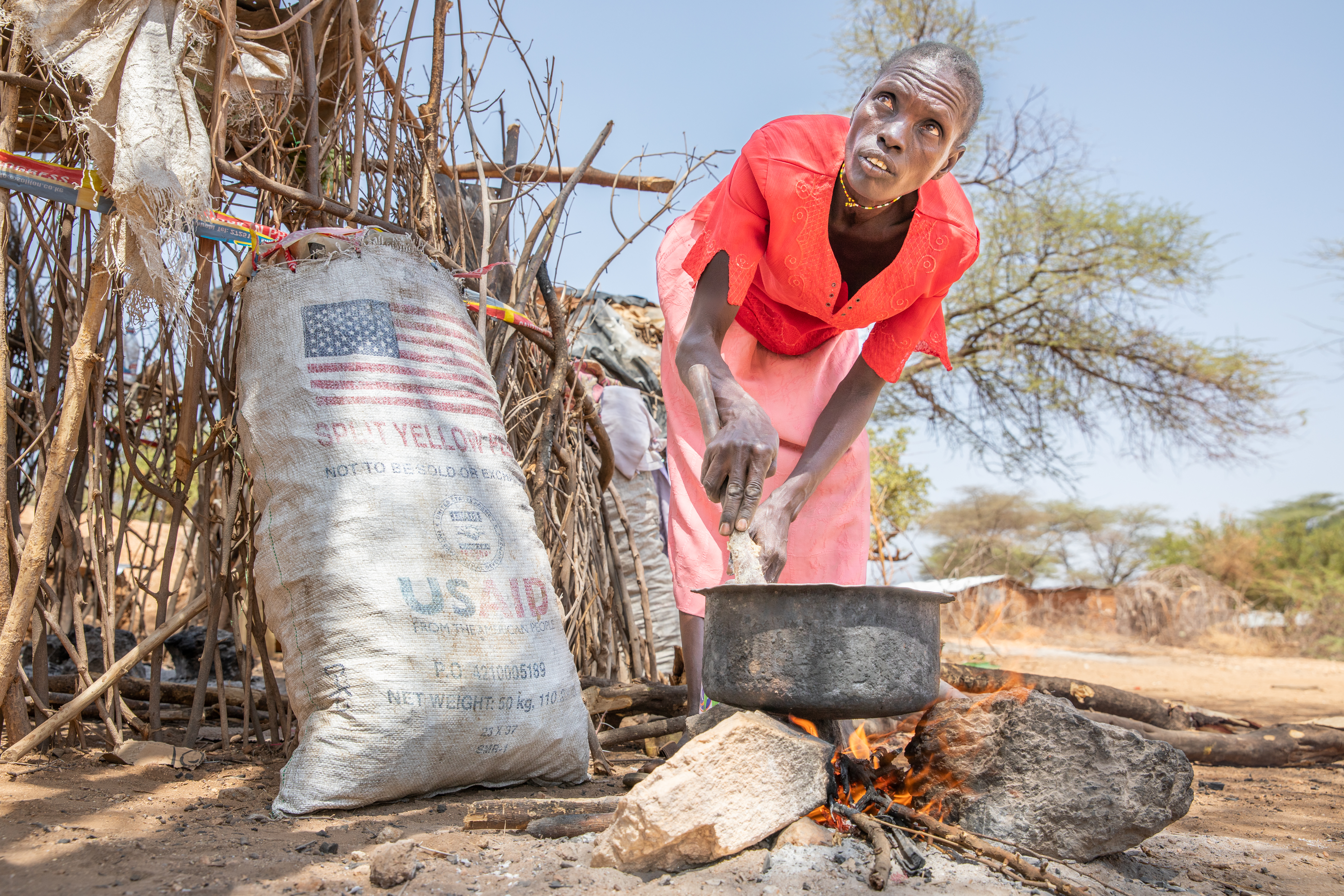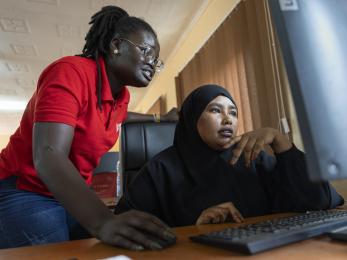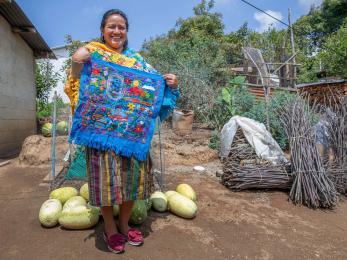Girls speak up and fight back for a safer world
In Nepal, girls’ safety is a growing priority for communities
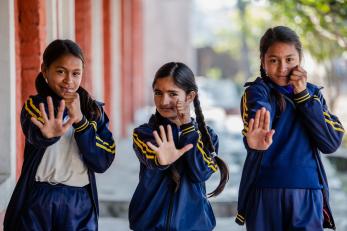
“Every girl should know that everyone deserves respect,” said Monika Wod, who teaches girls to defend themselves in Kailali, Nepal. Monika has trained more than 450 girls as a volunteer with Saksham Chhori—”Empowered Daughters”—a training that aims to equip girls with self-defense skills. “When someone does any wrong act that hinders our respect then that is not tolerable. No girls and boys should negotiate on this.”
The self-defense sessions brought students out of classrooms and into courtyards and fields where they practiced and gained confidence physically, verbally and psychologically. The girls performed drills by striking and guarding, exercised analytical skills like assessing their surroundings, and learned how to diffuse dangerous situations. Monika, who faces both gender and caste discrimination in Nepal, felt empowered during her own training to be a self-defense facilitator, “I have been very confident and outspoken to raise [my] voice against violence.”
Strength from the outside in
The training, which began as a partnership between Mercy Corps and local organizations, was founded to support girls in Nepal who may face gender-based violence like harassment and bullying. The program initially trained 88 facilitators from many ethnic backgrounds in order to reach as many girls as possible. Since training is delivered in local languages, the program can be culturally-specific for each community in remote areas of Nepal. Graduates of the training are often so eager to share what they’ve learned that they go on to lead their own classes, reaching more than 10,000 girls across Nepal.
The self-defense classes are part of a larger effort by Mercy Corps who worked with local organizations, schools and government to write up safeguarding policies, carry out awareness campaigns and create systems for handling complaints. Boys and parents took part in discussions about gender-based violence, and how they could be a part of the solution.
Another program facilitator, Ishwari Ranabhat, believes that the physical training of self-defense is key, and can create strength from the outside in. Ishwari was transformed by her own training, as she recalls, “As a shy young girl, the training helped me find myself. I was no longer the girl who couldn’t speak up anymore. It tremendously helped my confidence and I think I will be able to handle difficult circumstances on my own.”
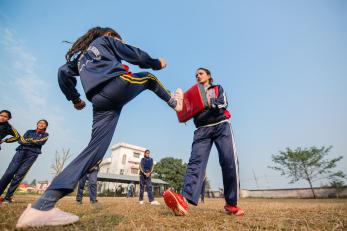
The impact of COVID‑19
The program also helps girls identify support systems in their own life, often made up of their school peers and teachers as resources. But COVID‑19 interrupted their safety net as schools closed across Nepal.
As in countries around the world, COVID‑19 intensified the risk of gender-based violence for women and girls in Nepal, where the number of domestic violence calls doubled during lockdowns according to the Nepal Women Commission hotline service and Nepal Police. In order to better understand how girls were being affected, Mercy Corps interviewed over 1,200 girls during lockdowns and found that 65% of girls didn’t know who to call if they were in an abusive situation while not attending school. In response, Mercy Corps reached more than 30,000 households by producing radio programs to promote toll-free hotlines that helped to connect people to resources like local safeguarding workers. Mercy Corps also coordinated with local governments to provide hygiene kits, that included flyers with contact information for people facing harassment and abuse, to 2,000 participants.
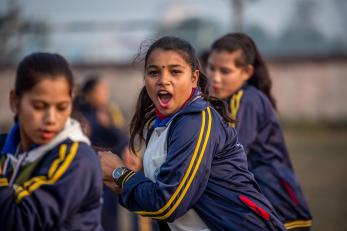
Stand up, speak out
Although there are resources for those to speak out against violence, it can be a big challenge due to cultural norms that may prioritize keeping up appearances and not sharing family business. Ishwari explains, “Generally, speaking up against violence is a less common practice. This is something connected with family prestige and perception by the community.”
But the reluctance to speak out is beginning to shift. The program trains facilitators to maintain girls’ confidentiality around sensitive issues while providing referral services so the girls can receive support in cases of abuse and violence. The program recognizes that building the girls’ self-esteem goes a long way to helping them stand up for themselves both physically and verbally.
Willingness to speak up has a ripple effect within families and communities. One participant’s mother summed up the difference she saw in her daughter after the training: “I have never seen my daughter explaining things to us. She shared about the discriminatory behaviors she faced at her school and lifetime for the first time. I was really shocked to hear this but her next words took my heart. She said, “If you face violence, do not keep quiet.”
